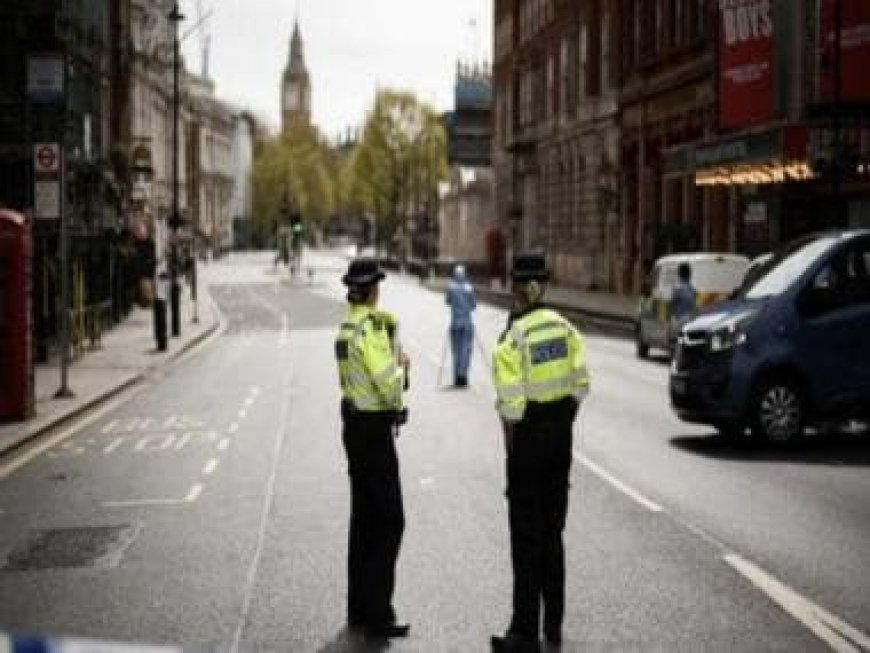Head of Britain’s police chiefs says force ‘institutionally racist’, wants overhaul of policies to stop discrimination
Head of Britain’s police chiefs says force ‘institutionally racist’, wants overhaul of policies to stop discrimination

The leader of Britain’s police chiefs’ organisation Gavin Stephens has become the most senior serving leader to say that policing is “institutionally racist” and called for a significant overhaul of national policies and practices to eradicate discrimination.
In an interview with The Guardian, Stephens, who serves as the chair of the National Police Chiefs’ Council (NPCC), expressed his personal view that discrimination operates at an institutional level in policing.
He specifically emphasised the need to eliminate disproportionate use of force against black individuals and highlighted the slow progress in reforming policing, with some leaders being hesitant to acknowledge the magnitude of the challenge.
“It’s a leadership responsibility for us to describe to them what it (institutional racism) means and what it doesn’t mean. It doesn’t mean that all police officers are racist,” The Guardian quoted him as saying.
“The way our policies, procedures (and) training have been designed and implemented for many years have not had the voices of black people involved in the design, the implementation, of those practices. And as a consequence of that, we get disproportionate outcomes in places where there shouldn’t be disproportionate outcomes.
“The most helpful discussion for policing to have in the future is how we redesign the policies, the practices, the implementation, of policing to remove that discrimination,” he added.
Stephens’ comments come amid the persistent debate within the policing community regarding whether it should acknowledge and confront institutional discrimination, a discussion that spans over three decades.
His input is expected to increase the pressure on leaders of major police forces in England to embrace the concept of institutional discrimination.
According to The Guardian report, the Metropolitan police commissioner, Sir Mark Rowley, had previously rejected the terms “institutionally racist” and “institutionally misogynistic” following a critical report last year. Rowley argued that the meanings of these terms were unclear.
The findings, by Louise Casey in March after the tragic murder of Sarah Everard in 2021, marked the second occasion where the police were found to be institutionally racist. The initial finding was made by Sir William Macpherson in 1999, following an inquiry into the failure to bring the racist killers of Stephen Lawrence to justice, added the report.
Despite initially accepting the findings in 1999, some police leaders later asserted that they had implemented reforms to the extent that institutional racism no longer applied. Stephens’ remarks now contribute to the ongoing discussion and scrutiny surrounding the issue of institutional discrimination within the police force.
Stephens said his personal view was that the reports were correct.
“The problems that we need to solve across policing are at the institutional level and they need institutional changes. Whether you look at the Macpherson definition in the Stephen Lawrence report, or whether you look at Louise Casey’s definition, my personal view is that they apply to policing,” Stephens told The Guardian.
When questioned about his stance on whether he believes “police are institutionally racist,” Stephens affirmed his affirmative stance, underscoring the significance of the rationale behind his conclusion.
While Police Scotland, the second-largest force in the UK, along with Avon and Somerset police and the British Transport Police, have acknowledged the applicability of the term to their institutions, the three largest forces in England — namely the Met, West Midlands police, and Greater Manchester police — maintain dissenting opinions on the matter.
“Colleagues have valid reasons why they don’t want to go down that route,” said Stephens.
Following the killing of George Floyd in the US and the subsequent Black Lives Matter protests in 2020, the NPCC pledged reform and introduced a race action plan. However, critics argue that after three years, little to no meaningful progress has been achieved.
Stephens acknowledged that there has been some advancement, but he noted that certain police chiefs have been slow to acknowledge the magnitude of the issues.
“We have got some tangibles. I’d be the first to accept that we haven’t made progress at the rate that we would want to,” he said. “To get acceptance of the scale of that challenge took longer than we’d anticipated,” he added.
Expressing personal support for the idea of licensing police officers, similar to nurses or doctors, Stephens believes it would contribute to the professionalisation of the service. He looks forward to an “active” debate on this matter among his fellow chiefs.
Appointed as NPCC chair in March 2023, Stephens had previously served as the chief constable of Surrey police.
With inputs from agencies
What's Your Reaction?



























































